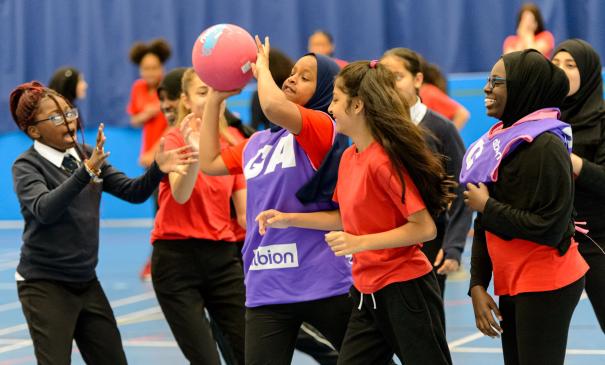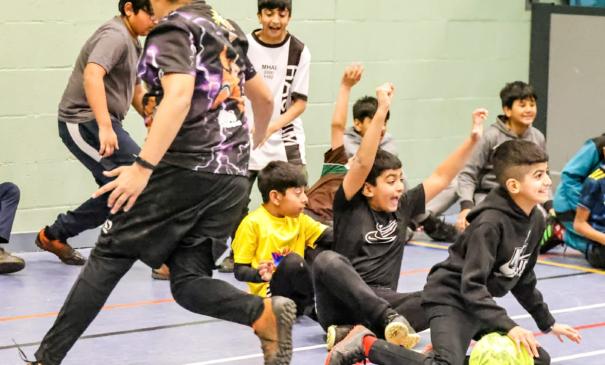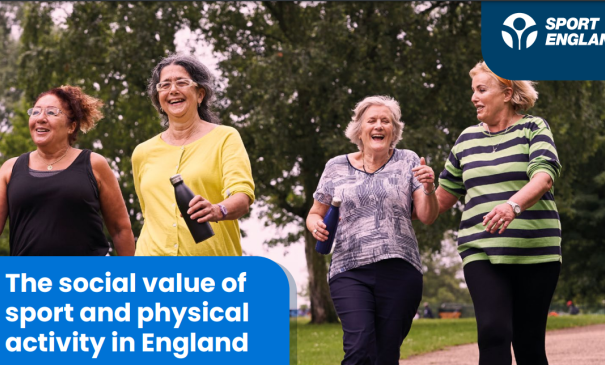Enhancing the role sport-themed approaches can play in addressing the challenges and barriers that young people face in a post-Covid landscape when transitioning into employment, or when facing under-employment, will be central to the Sport for Development Coalition’s new policy initiative on sport and employability over the coming months.
Access the Request for Submissions - deadline September 17th.
Official statistics have shown that young people have borne the brunt of the negative economic impacts of Covid; they occupied over half (54%) of the 800,000 jobs lost in the 12 months up to March 2021, which has led to a 2.3% increase in youth unemployment to 14.4%. The most pressing issue, though, is long-term youth unemployment, where a young person is out of work for six months or more which, according to research from Youth Employment UK, has risen by an alarming 50% over the last year.
The pandemic has caused inequalities to grow in numerous areas of society, and youth employment is no different, with LJ Rawlings – the CEO of Youth Employment UK – noting: “It’s those young people who are further away from the labour market who are being left behind… and they are the ones that we really need to worry about.”
The intersection of these issues sees them magnified, with Youth Employment UK’s research showing the reduction in working hours for Black young people (49%) during the pandemic three times higher than those for White young people (16%), and a report from the institute of Fiscal Studies highlighting rises in income inequalities between richer and poorer households, and socio-economic inequalities in education and skills.
LJ recently penned this blog for the Coalition, and featured on a live forum as the network commenced its focus on youth employment. Following the format conceived earlier this year where the Coalition collated and compiled evidence and policy recommendations on how to enhance sport’s role in tackling the mental health and wellbeing crisis, on the Coalition’s sport and employability initiative will engage sector leaders, policy experts, practitioners and academics, and see the publication of a sector-wide report and policy brief aimed at helping policy-makers maximise sport, physical activity and sport for development’s contribution to tackling youth unemployment.
SCARRING
Breaking the cycle of long-term youth unemployment matters most because, according to LJ, “once you're six months or more unemployed, the scarring effect takes place, and that is on your mental health and wellbeing and on your long-term socio-economic status. It is much harder if you've spent six months unemployed to compete with your peers – who have had no period of unemployment in terms of salary and career progression – across your lifetime. It's not even a short-term thing, that's a lifetime cycle.”
Worringly when it comes to alleviating these deep-rooted issues, a new study published by the Centre for Social Justice recently reported that young people feel there is a lack of support around jobs, work experience, skills and training with 85% of 18 to 34-year-olds saying they couldn’t get advice on opportunities and business ideas in their local area.

This is why early in the pandemic Youth Employment UK teamed up with Impetus, Youth Futures Foundation, the Institute for Employment Studies and the Prince’s Trust to form the Youth Employment Group (YEG). In June 2020 the YEG called on the Government for an ‘Opportunity Guarantee’ for every young person to get the help they need to get into work, and earlier this year called for Kickstart – the Chancellor’s flagship Covid-19 youth employment programme – to be extended.
Several members of the Sport for Development Coalition are amongst the 250 organisations to have signed up to the YEG since its inception in April 2020, while the Coalition is subsequently developing its own series of policy initiatives aimed at maximising the contribution of sport, physical activity and sport for development to the recovery from the pandemic. These members, and other leaders from the fields of sport and employability, will come together to develop evidence-based policy recommendations around three key areas where sport is being used to help young people. These are:
- the transition from education to employment;
- when young people face additional barriers to entering skills-based education and employment;
- when young people face under-employment and challenges around the quality of work opportunities.
EXPERIENCE
By focusing on these areas and working collectively through the Coalition, there exists a national opportunity to harness the essential transferrable skills being acquired by young people in, and through sport, and replicate them at scale. The voices of young people, and recording their lived experience, will be core to this process.
- Ben is a former apprentice at Coalition partner charity Coach Core who is now working as a basketball coach in Plymouth. He says: “The biggest thing I realised when I started with Coach Core was that there was way more to the sporting world than just the coaching on the court. A big part of it for me was learning to interact with people at different levels, talking to a four-year-old child versus talking to the headteacher of a school; adapting the language that I used. The skills that I’ve picked up from Coach Core, I will use wherever I go.”
- Zoe, a former participant at Sport 4 Life who now helps to support other young people through the charity’s NCS scheme, adds: “I've always known there's more to just doing the sport; you learn communication skills, team-building skills, problem-solving skills, whilst actually playing sport. I think people are starting to understand that sport is not just kicking a ball or throwing a ball. It's actually about the mind and the process behind it, and you can give young people so many skills just by playing sports. That's what I really, really enjoy.”
- Callum struggled with mental health issues before progressing through Premiership Rugby’s HITZ employability programme and becoming a Teaching Assistant for the foundation of Exeter Chiefs Rugby Union Club. He said: “Sport has given me something indulge in, and give my brain a rest. It’s nice to take part in it, you feel that you are part of a community and part of a team, you have got people relying on you and you don’t feel alone any more - like I did when I was in my dark patch.” He added: “There’s a lot of young people who have finished school in the middle of a pandemic, who have probably been thinking ‘I couldn’t leave my house so how am I going to join a college, or get an apprenticeship?’ This is where I think young people are really going to need us now.”
- Hear from more young people across the Coalition network.

The Coalition’s #SportForEmployability initiative will seek to promote and mobilise support from the sport for development community for priorities set out by Government, youth employment experts and young people. For example, member organisations are being encouraged to support Youth Employment UK’s important #CreateYourFuture campaign this summer which is creating work and training opportunities for young people across the UK at this crucial time.
The initiative will also articulate and support understanding of the contribution that can be made to employability outcomes at scale ‘in’ the sport, physical activity and sport for development fields and ‘through’ sport and physical activity-based interventions and approaches. Ultimately, it will aim to set out the policy initiative, support and approaches that can ensure the potential of sport to contribute is fully realised.
The Coalition is calling for further case studies, learning and evidence on sport and employability to help inform a sector-wide report and policy brief which will be produced over the coming months. Read the Request for Submissions, and send submissions to [email protected].



